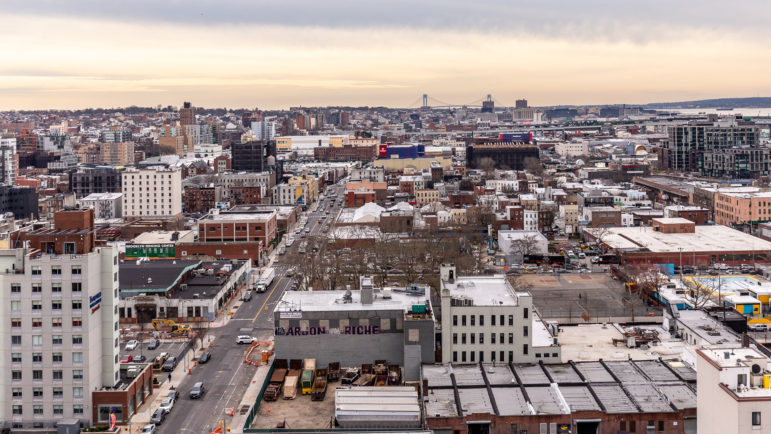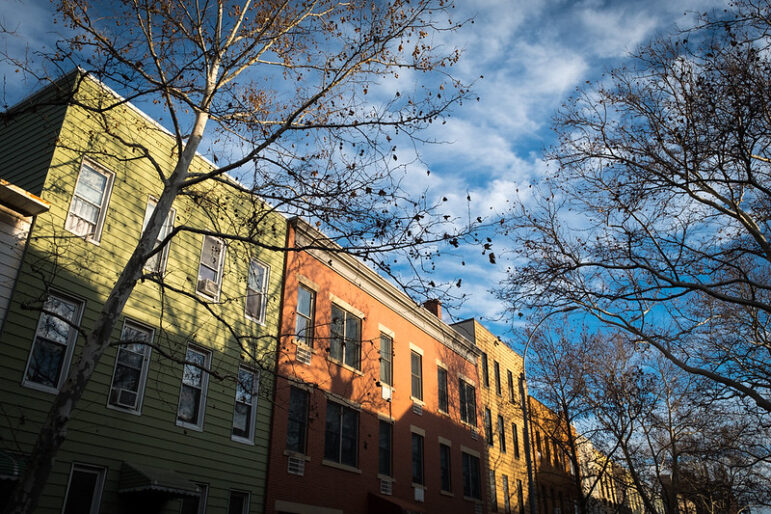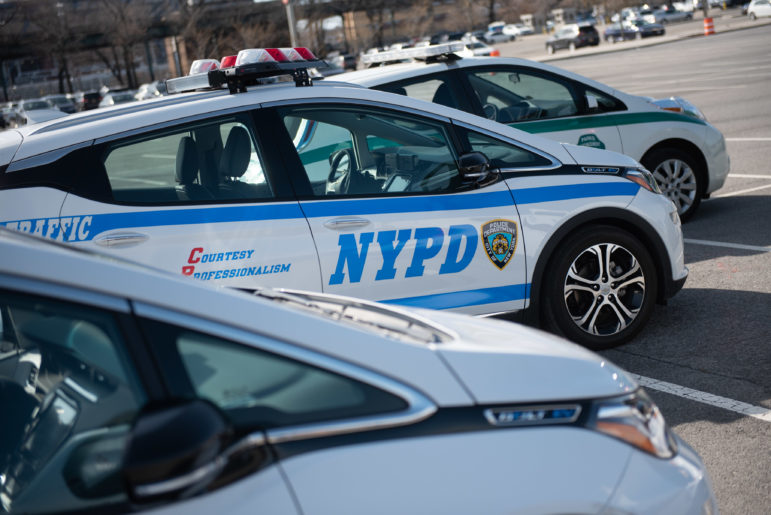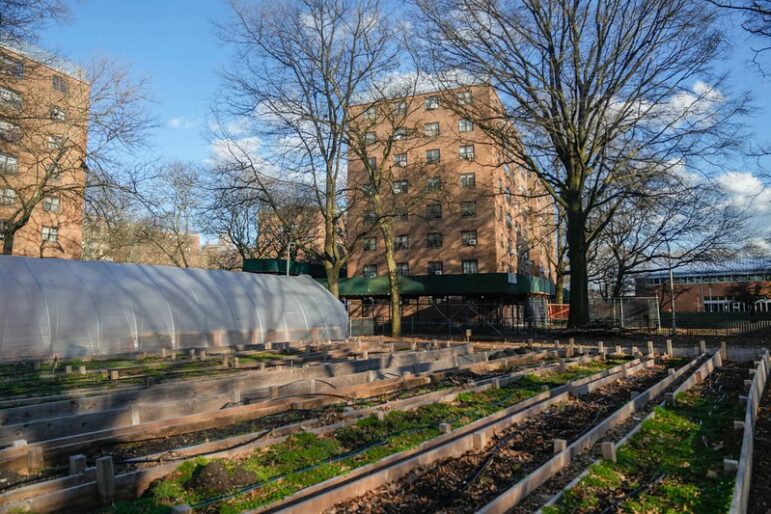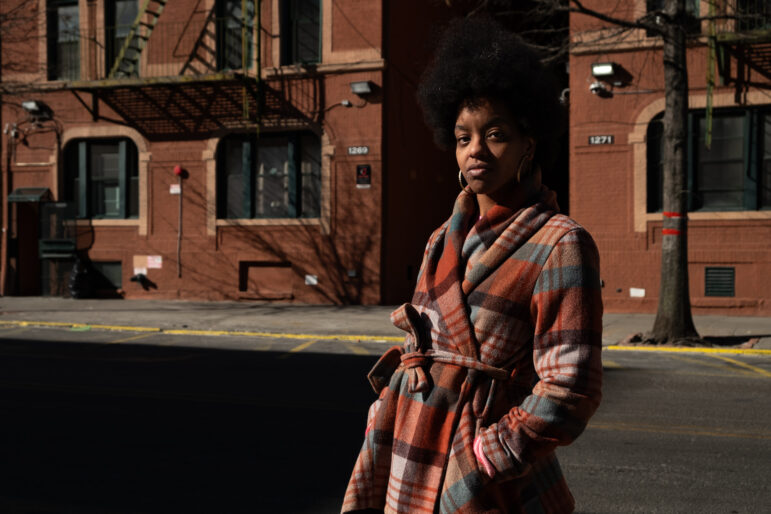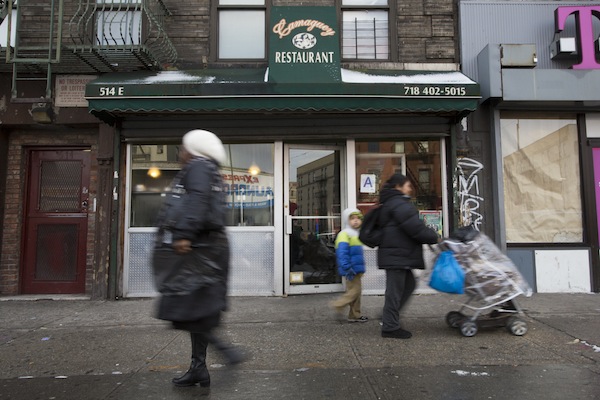
Photo by: Marc Fader
At the Camaguey eatery, the policy arguments over reducing salt in food or eliminating plastic-foam containers seem distant. Worries about gun violence, on the other hand, are very close.
This article is an installment in The Five Borough Ballot, a collaboration between City Limits, City & State and WNET’s MetroFocus. In each edition of the print and video series, we return to a location in each of the five boroughs to ask real New Yorkers their take on the 2013 election as it unfolds. For a complete overview of the series, go here
On a February weekday, the regulars streamed into homey Camaguey Restaurant on 138th St. in Mott Haven for lunch. Many opted for the beef stew as a means of combating the winter chill. One regular customer ordering a plate of fried fish and plantains asked jokingly, “Where can I get some salt in this restaurant?” prompting one of the wait staff to quip, “Bloomberg doesn’t want you to have any salt.”
For some Mott Havenites, the mayor’s controversial quality of life policies, such as banning plastic-foam containers and large soda bottles, are mere whimsies. Many here think the city is not doing enough to address what they contend are more serious issues, like violent crime and education.
Luis Ospina, 49, has worked selling furniture at a local discount store for 10 years. He listed public safety and drugs as the most pressing problems; he then added that bleak living conditions in the neighborhood’s omnipresent public housing complexes exacerbate those concerns.
“Have you seen how filthy those places are?” he said. The city should implement more job training programs for young people who lack realistic prospects of finding good jobs, he said. He added that he would like to see more police on the streets.
Loyda Lopez, who grew up in Mott Haven but moved to Pelham Parkway when she was 19, sat with her 23-year-old daughter, savoring the stew. She comes to Camaguey because “nobody makes this stuff better than them.”
Lopez moved away to raise her kids in a safer environment, but returns to Mott Haven twice a week to visit family. Although nostalgic about the familial feel of her old neighborhood compared with more buttoned-up Pelham Parkway, she lamented that some of the problems she left behind three decades ago are unchanged.
“They need after-school programs,” she said, adding that residents “have nobody to help them with their kids.”
“Guns are all over the place,” she said, adding that the mayor’s gun control policies have fallen short. “Talk is cheap. How do they still find a way to have these guns?”
“The only thing Bloomberg gave us was 12 years for free,” she said, referring to the billionaire mayor’s willingness to serve without a salary. “Hopefully this borough will get much better.”
Another woman, who asked not to be named out of fear of violence, recalled hearing gunshots one early morning a few months ago as she arrived to open the restaurant. A man in his 20s came racing around the corner, chased by the gunman, then hopped into a waiting car.
“What if someone standing outside got hit with a stray bullet?” she said.
But Gloria Cruz, a prominent local anti-gun violence activist, says the mayor has “started a lot of great programs,” on gun control and education, and “it would be sad if the next mayor doesn’t follow through.”
Cruz, whose niece was killed by a stray bullet several years ago, organizes Mott Haven’s annual Million Mom March, which unites family members who have lost loved ones to violence.
She attended President Obama’s Feb. 12 State of the Union address in Washington, as a special invitee of Congressman José E. Serrano, who has represented Mott Haven since 1990. In a press release following the president’s speech, Serrano echoed his constituents’ concerns, mentioning the gun violence issue first, ahead of jobs and immigration reform.
Cruz says residents involved in grassroots advocacy campaigns too often lose focus.
“People want to put a Band-Aid on it. We need more than a Band-Aid,” she said, adding the new mayor should establish local long-term task forces in high crime neighborhoods.
But the first vice-president of the 40th Precinct Community Council, Carmen Aquino, said Mott Haven is safer than it used to be, thanks in part to a recent series of high-profile arrests. Local police and federal law enforcement collaborated to dismantle several crews that sold drugs in nearby NYCHA complexes last year.
“Crime has gone way down,” she said, adding she no longer hesitates to go out evenings, as in the past. The number of murders in Mott Haven fell from 21 in 2011 to 12 in 2012. Felony assaults were also down, from 456 to 390, according to crime statistics published by the NYPD.
Still, Aquino added, the city often forgets “small communities” and should implement more after-school programs.
The Community Council president, Gabriel De Jesus, who also conducts outreach for a local church, says Mott Haven’s poverty and high crime have led to heavy-handed city policies that negatively impact residents.
He says parents often ask “Why is the juvenile justice system taking our kids away from us?” and he doubts concern over poor communities like Mott Haven are what compelled the president to emphasize gun violence in his State of the Union address.
“The only reason we’re focusing on guns is because of what happened in Connecticut,” he said, referring to the Sandy Hook school shooting.
The city continues to show its disregard for the South Bronx in other ways, dumping social programs here that are unwanted elsewhere, such as “the overwhelming amount of methadone clinics and shelters,” he added.
“Who’s really focusing on ‘I get my food in a Styrofoam container?'” De Jesus said. “I don’t think he’s focusing on core issues.”
Aquino, who works as a parent coordinator in a local school, says immigration is another issue many here are focused on. Africans, Mexicans, Central Americans and Ecuadoreans have made Mott Haven home in recent years.
Estela, a 35-year-old Mexican woman who declined to give her last name, grills corn outside Camaguey’s entrance, then sells it for $2 an ear, from early morning until late nights, with her 2-year-old daughter by her side. On a good day, she said, she makes $100.
For Estela, there is one pressing concern: immigration reform.
“All I want are my papers,” she said, adding she has no interest in city politics.
Petty crime is a concern for some. Beverly Small owns a discount store around the corner from the restaurant.
“We need cops. I have thieves coming in to my store,” she said.
For Small, 59, housing the area’s many homeless is another area of concern, as is healthcare for the elderly, fighting the neighborhood’s asthma epidemic, and improving the quality of school lunches.
“He’s a Republican, but he did his best,” said Small of Bloomberg, whom she refers to as the “Tree Mayor” for his emphasis on planting street trees.
“It’s going to be a very interesting race,” De Jesus said of the coming mayoral election. “They’ll need to focus on concerns the people have, not their own agendas. Let the people speak about what’s bothering them.”


